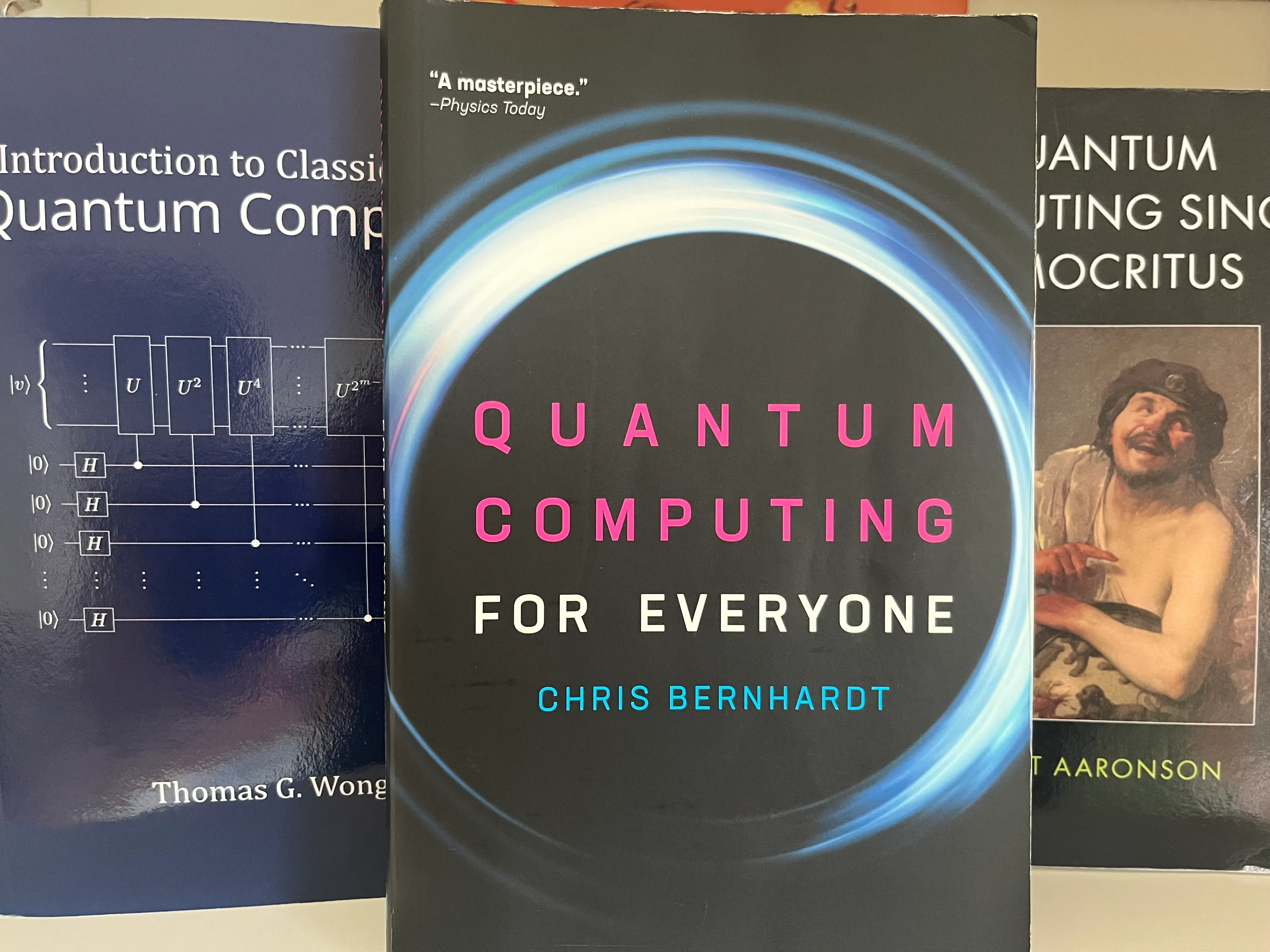If you are a sorcerer’s apprentice or a quantum computing aspirant (by “aspirant” I mean that, like me, you find the topic intriguing and fascinating but know next to nothing about it), then you might find these recommendations useful in some way.
The first book, Quantum Computing for Everyone by Chris Bernhardt (MIT Press, 2020), is the best introduction to the topic I have read so far. This short and exceptionally well-written book covers basic principles, gates (both classical and quantum), and algorithms. This is the kind of book I would recommend taking on a weekend alone in the mountains. My only complaint (although I understand the author’s reasons) is that complex numbers are completely omitted from the presentation. Which brings me to the second book: Quantum Computing Since Democritus by Scott Aaronson (Cambridge University Press, 2013).
Despite the title, this is actually a book on computational complexity with a few chapters on quantum computing. I really like the intuitive way he introduces quantum computing as a generalization of probability theory for complex numbers and the 2-norm. This is not really a textbook, although it looks like one in parts. The book is formal and contains several mathematical proofs, but it is also opinionated and fun to read. His proposal for a proof of Gödel’s completeness theorem is simply brilliant.
The third book, Introduction to Classical and Quantum Computing by Thomas G. Wong (Rooted Grove, 2022) is more of a conventional textbook, I will not claim to have read all of it, but it has proven useful as a reference, for example to check implementations in Python (Qiskit); also, it was recommended to me by someone who is a rock star in the field.
What I meant by the title of this post is that for me, learning something new requires, in addition to curiosity and perseverance, a large dose of ingenuity (and the firm belief that God loves babies and fools 😉).
PS. I wonder if future AI systems, in their math-solving abilities, will be able to invent or discover something as powerful and profound as complex numbers.
